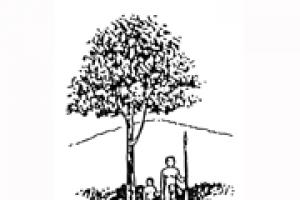The huge Aracruz Celulose high-tech pulp and paper complex located in Barra do Riacho in the Southeast region of Brazil has led to major conflicts since the company’s encroachment upon land belonging to the Tupinikim and Guarani indigenous peoples. However, not only land but also water is being taken over by the company’s mill and large-scale monoculture tree plantations which spread along more than 175,000 hectares in the north of the State of Espirito Santo and the Southernmost part of the Bahia State.
Large-Scale Tree Plantations
Industrial tree plantations are large-scale, intensively managed, even-aged monocultures, involving vast areas of fertile land under the control of plantation companies. Management of plantations involves the use of huge amounts of water as well as agrochemicals—which harm humans, and plants and animals in the plantations and surrounding areas.
Bulletin articles
23 April 2007
Bulletin articles
23 April 2007
Eindhoven Airport in the Netherlands has claimed to be the first airport in Europe where passengers as of May 2007 can compensate emissions from their flight by donating for tree plantation projects. Last week however, activist groups in London have criticized this kind of carbon offsetting. So how credible is carbon compensation?
Bulletin articles
23 April 2007
On last April 9, the Galician organization APDR (Asociación pola defensa da Ría) issued an official statement regarding the FSC certification of the NORFOR company, a subsidiary branch of the Spanish pulp and paper company ENCE, which had been certified in April 2005.
Bulletin articles
23 April 2007
The case study “Swaziland: The myth of sustainable timber plantations” carried out by Wally Menne and Ricardo Carrere and published in March 2007, aims at unveiling the myth of sustainable plantations in Swaziland and showing that large-scale monoculture tree plantations in this country have similar negative impacts as elsewhere and are no exception to the rule.
Other information
24 March 2007
Monoculture eucalyptus plantations are advancing over vast areas of the country, occupying traditional peoples’ territories, displacing them, evicting people from rural areas, thus contributing to the creation of poverty belts, with the context of violence and criminality these necessarily imply. And as if this were not enough, they also have their quota of bloodshed.
Bulletin articles
24 March 2007
If we want to curb climate change, carbon trading won't do.
In 1992, an infamous leaked memo from Lawrence Summers, who was at the time Chief Economist of the World Bank, stated that "the economic logic behind dumping a load of toxic waste in the lowest wage country is impeccable, and we should face up to that".
The recently released Stern Review on climate change, written by a man who occupied the same position at the World Bank from 2000 to 2003, applies a similar sort of free market environmentalism to climate change.
Other information
24 March 2007
Loss of land and loss of access to natural resources is fuelling a livelihood and economic crisis among Cambodia's rural communities. "People are being dispossessed from their lands by those with political power and money," writes Shalmali Guttal in a recent report for Focus on the Global South.*
Other information
24 March 2007
Last December I was travelling with three friends (a Cameroonian and a Swiss couple) along the public route that crosses the oil palm plantations belonging to Socapalm (Société Camerounaise des Palmeraies) in the Kribi region. On reaching the control post installed by the company – that we had crossed earlier on – we were stopped by a private security guard who demanded our identity documents. On asking him why he wanted them he informed us that Socapalm “secret agents” aware of our visit had ordered him to do so.
Other information
24 March 2007
Sappi's plantations in Swaziland are the epitome of what is wrong with industrial tree plantations. More than fifty years of living with plantations has done less than nothing to develop the country's people. Species-rich grasslands were destroyed and people moved to make way for the plantations, when they were established as a British “aid” project in the 1950s. The plantations are monocultures of pine trees, exotic to Swaziland. Every year, Sappi clearcuts a total of 3,000 hectares of its plantations, leaving vast scars on the landscape.
Publications
22 March 2007
By Wally Menne and Ricardo Carrere
Declarations
8 March 2007
By the World Rainforest Movement - March 2007.
At the beginning of the twentieth century, women's struggles for emancipation took on greater visibility. They were times of social and political transformations and women started to mobilize for their rights, and among these, for their right to vote. In 1911, the first International Women's Day was celebrated and in 1975, the United Nations Assembly formally recognized 8 March as International Women?s Day.
Other information
26 February 2007
Last year, about 170 farmers met in the farming community of South Riana to air their concerns and see how to stop valuable farmland being converted to timber plantations. They were concerned for the future of the area -- built on successful dairy and cropping enterprises -- and called for the Tasmanian Government to abolish tree plantation development on prime agricultural land.


